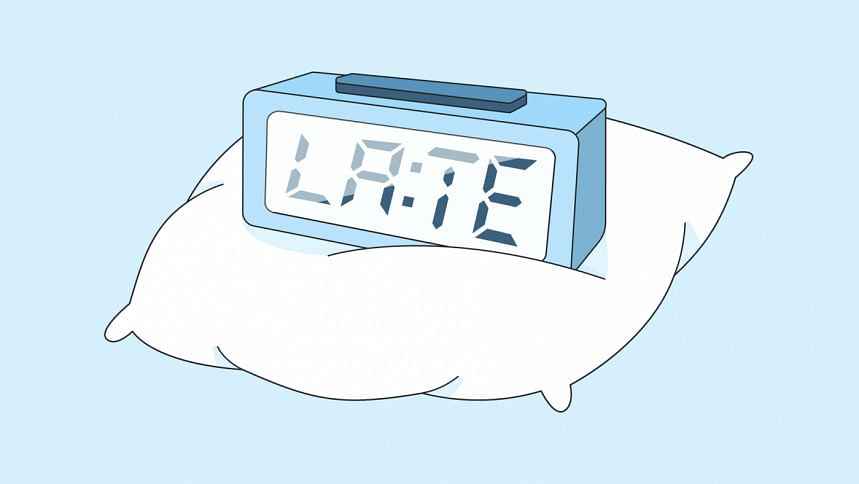Overcoming the habit of oversleeping

We are often warned about the health implications of getting too little sleep or staying up late. While these habits are legitimate concerns and might even lead to insomnia and irregular sleeping habits, the other side of the spectrum, oversleeping or getting too much sleep, is just as harmful.
Oversleeping could be the result of multiple causes; stress, unbalanced diet, overworking, etc. In extreme cases, a doctor should be consulted as some people might develop sleeping disorders. However, it might be worth a try to adapt some habits into one's lifestyle to overcome oversleeping.
Getting into a routine
Easier said than done, having and sticking to a routine would assist the quality of sleep one gets. Setting specific times to wake up, preparing healthy and balanced meals, regularly exercising and heading to bed on time would help the body to develop its own schedule and function accordingly, thus avoiding oversleeping or under sleeping.
Creating the perfect sleep environment
The body and brain can be prepped for slumber by establishing a sleep-friendly environment, which will make falling asleep much easier. A dark silent room is necessary for a good night's sleep. Filtering out background noise with earplugs might be worth a try. The room's temperature is also an important consideration. With a room too hot or too cold, sound sleep is unlikely. Adjusting the fan's speed or regulating the air conditioner's temperature to find the desired temperature, could help in falling asleep quicker.
Changing alarm habits
A love-hate relationship with alarms is common. Hitting snooze and getting those last few minutes of sleep is tempting. However, using a light alarm or a sunrise alarm instead of a loud jingle helps in waking up more gently and naturally, thereby preventing the annoyance we feel because of loud and invasive alarms, and also decreasing the temptation of hitting snooze. This will help waking up on time instead of oversleeping.

Avoiding caffeine
Caffeine is a necessity for some people to function. However, as caffeine helps us stay awake, it is no surprise that it also pushes back bedtime. Avoiding caffeine a few hours before bedtime would help the body and mind relax, slowly preparing for slumber.
Putting the tech away
Blue light from phones and computers affects our sleep. Harvard Health Publishing by Harvard Medical School shared an article about the adverse effects of blue light on sleep. They explain how light of any kind has a negative impact on melatonin production (the hormone regulating the sleep-wake cycle), however blue light has a far worse impact. So, putting electronics away before bed is one step toward learning how to sleep better and for longer periods of time.
Avoiding naps and extra sleep on the weekends
Many use weekends to catch up on their sleeping. However, sleeping longer than usual on weekends can be harmful to one's sleep schedule and health. According to an American Heart Association study, individuals spending their weekend to get more sleep are more likely to have poor cardiovascular health than those who do not.
Additionally, frequently napping throughout the day can make one feel even more fatigued or sluggish than if they had not rested at all. Staying hydrated can help to stay alert during the day.
Other activities like reading a book before bed, meditating and stretching, keeping a sleep journal to monitor one's sleep habits, and listening to soothing music could also help improve quality of sleep and prevent oversleeping.

 For all latest news, follow The Daily Star's Google News channel.
For all latest news, follow The Daily Star's Google News channel. 









Comments